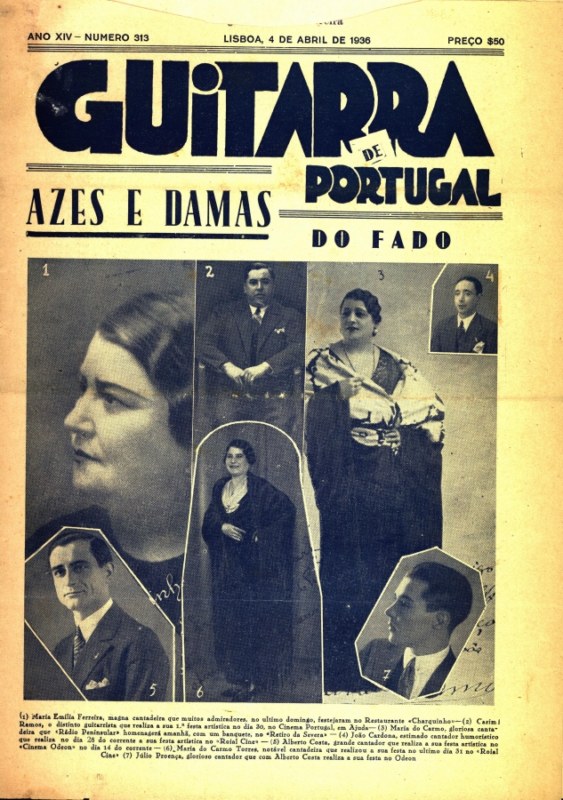Know more:
Casimiro Ramos
(N. 16 February, 1901 - M. 29 April, 1973)Casimiro Ramos was born in Lisbon on February 16, 1901. He was an outstanding guitar player with a rare sensibility who - between 1915 and 1973 - composed some famous themes, as “Nocturno”.
He appeared in several fado houses, namely Luso and Tipóia, where he worked for over 20 years. In 1934 he travelled for the first time to Brazil with the cast of Companhia de José Loureiro, with Estevão Amarante, Adelina Abranches, Maria Alice, Maria Sampaio, and Lina Demoel, the singer Manuel Cascais and the violin player Armando Silva.
He returned to Brazil in 1937 with Companhia Satanela with the play "Pernas ao Léu", at Teatro República, in Rio de Janeiro, that premiered on June 14. He appeared in the film A Canção de Lisboa, with Beatriz Costa and Vasco Santana, and in several radio broadcasts. In an interview to the newspaper "Guitarra de Portugal" from March 31, 1937, while preparing his second visit to Brazil, Casimiro Ramos explained his connection to the Portuguese guitar:
"(...) My love for the guitar began when I was just a child at the time of the "Troupe Mayer", with my father, the late Domingos Serpa, and others. I used to spend part of the evenings wide-awake listening to their rehearsals. The hours would go by and I would spend the time listening to those guitars played by the expert fingers of the great Diamantino Mourão, Agostinho, Júlio Sales, Carlos Cortador, etc., etc. I really miss those days in which, my friends, that core of true guitar artists performed the classical music most difficult passages and the most different foreign popular music without having someone call them bad fado players…Well, "those were the days", as my friend Gabriel de Oliveira said in one of his lovely songs. As I was saying, little by little I felt totally in love with the guitar I had started to learn when I was 14 years old. And I’ve been living with her throughout the different moments of my life, playing for the best singers - common and simple unknown people like myself and the ones from the “upper class” – and they always treated me very nicely, lucky me (...) if I have any value I owe it to my will to learn, to this stubbornness to do it right. That is the obligation of all those involved in any kind of art that has to be judged, evaluated or criticized by the audience."
He had a profound admiration for his brother, the guitar player Mário Ramos, and played with him for many years. On April 30, 1936, Casimiro Ramos did his first artistic show at "Portugal Cinema" (Travessa da Memória - Ajuda) "with a marvelous Fado show" featuring Berta Cardoso and Maria do Carmo Torres. (Guitarra de Portugal, April 4, p.5).
Casimiro Ramos organized some shows in support of the members of the “fado family”, namely the celebration of the "Cantador Solitário", the fado singer Manuel José Ribeiro that took place at Sporting Club Rio Seco headquarters on July 5, 1936, at 3pm. With Martinho d'Assunção Júnior (guitar), he was part of the cast of Café Luso in December 1939, according to a feature from Guitarra de Portugal on December 28.
In 1937, Casimiro Ramos and the guitar player Armando Silva, travelled for the second time to Brazil with the singer Maria Albertina. Prior to his departure, Casimiro had a farewell party on April 15 at Cervejaria Jansen (R. António Maria Cardoso), with many friends and some of the great personalities of fado, as João Linhares Barbosa. His friends Filipe Pinto, Carlos Figueiredo, Joaquim Pimentel, and Alfredo de Almeida organized this party. "Guitarra de Portugal" mentioned this event: "(...) followed by an interesting fado medley prior to which the honored asked all of those who by any reason were annoyed with someone else to try to make peace with them. This brotherly and comradely sentimental request was a very nice breakthrough quite original in festivities as this one". This fado “cortège” visit to Brazil was organized within the play “Pernas ao Léu” by Companhia Satanela, that premiered at Teatro República, in Rio de Janeiro, on June 14, 1937, which, according to a feature in “Guitarra de Portugal” (July 31, 1937)
Maria Albertina was a major hit. During their stay Casimiro Ramos, Armando Silva, and Maria Albertina performed at the Portuguese Embassy before the President of the Brazilian Republic and all the members of the diplomatic representations in Brazil. After renovation works, he reopened Café Luso (Av Liberdade, 31) on November 11, 1934. For this new life of that old fado cathedral, the permanent cast was announced: "Every evening the distinguished duo of players Casimiro Ramos and Miguel Ramos perform the most beautiful variations and the best popular music themes".
Throughout his life, Casimiro Ramos played guitar for countless fado singers. He recorded several disks, mainly as co-player, and participated in radio broadcasts, particularly during the 1950s. As a composer he created: "Irrisões" (Alexandrino) for the singer Margarida Pereira; "Fado Pinóia"; "Fado Amélia Martins"; "Fado Apolo"; "Fado Rainha Santa"; "Fado Terezinha"; "Fado Alice", "Fado do Rio", composed in Brazil for a sketch for the actor Estêvão Amarante), "Fado Lolita", "Fado Três Bairros", etc. He also created some tangos (a genre widely spread during the 1930s and 40s), the most famous being "Não Quero, Não" that was quite a hit in the 1930s.
Casimiro Ramos was the generous master of many amateur guitar players (some of them are now professional players, as João Torre do Vale) who attended Tipóia, in Bairro Alto (the fado house he co-owned with Adelina Ramos), and where he played for over 20 years.
He died in Lisbon on April 29, 1973.
Source:
“Guitarra de Portugal”, 29 de Novembro de 1933;
“Guitarra de Portugal”, 31 de Março de 1934;
“Guitarra de Portugal”, 21 de Abril de 1934;
“Guitarra de Portugal”, 04 de Abril de 1936;
“Guitarra de Portugal”, 25 de Julho de 1938;
“Guitarra de Portugal”, 15 de Novembro de 1945;
“Guitarra de Portugal”, 15 de Outubro de 1946
Parreira, António e Machado, Jorge (1999) “Notas de Música”, Col. “Um Século de Fado”, Lisboa, Ediclube. Última actualização: Julho de 2009
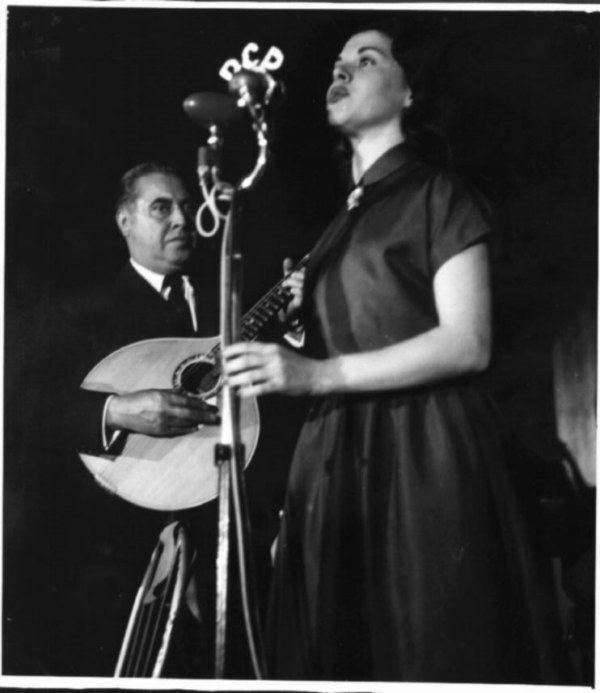
Casimiro Ramos e Fernanda Peres, s/d.
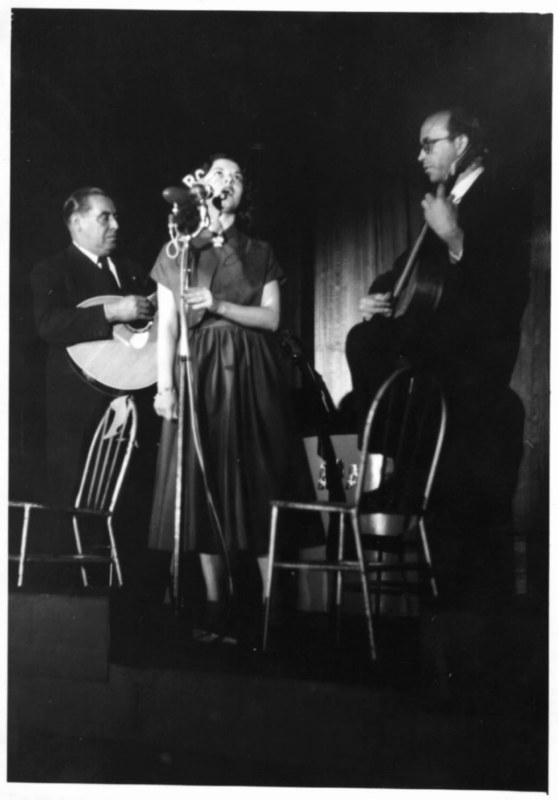
Casimiro Ramos, Fernanda Peres e Castro Mota, s/d.
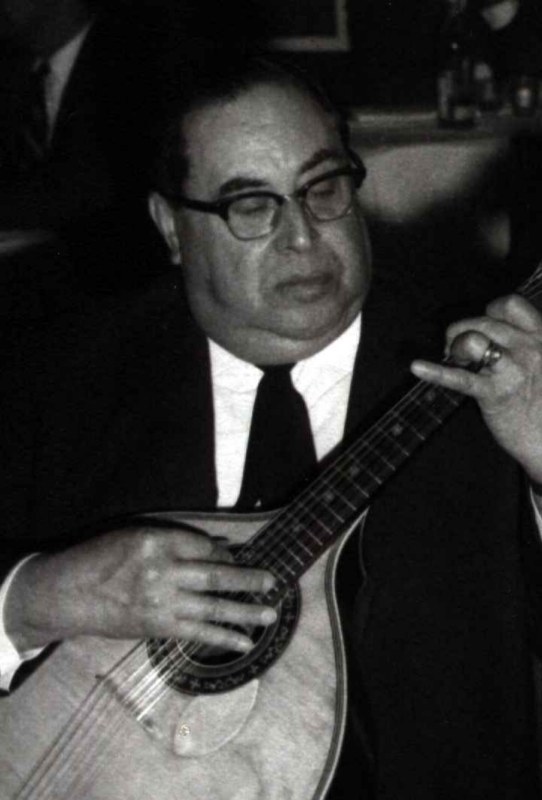
Casimiro Ramos, s/d.
-
Nocturno Casimiro Ramos (Casimiro Ramos)
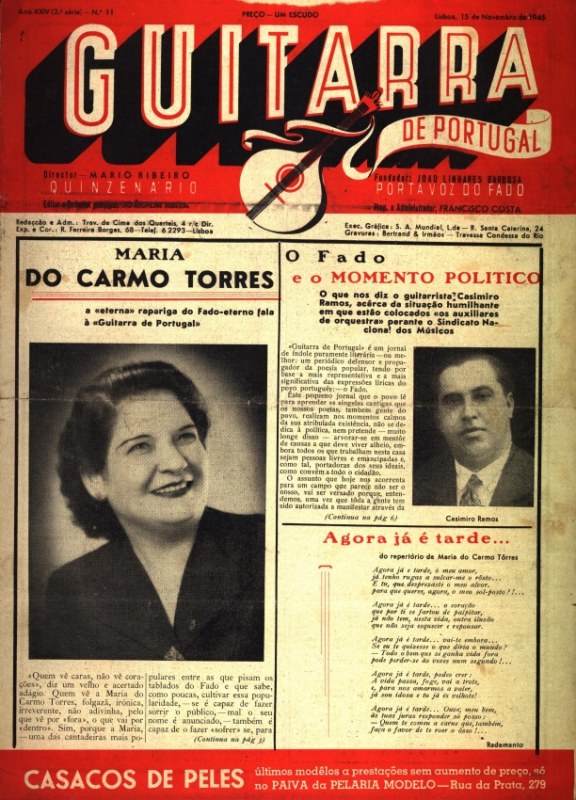
Guitarra de Portugal, 15 de Novembro | November 1945
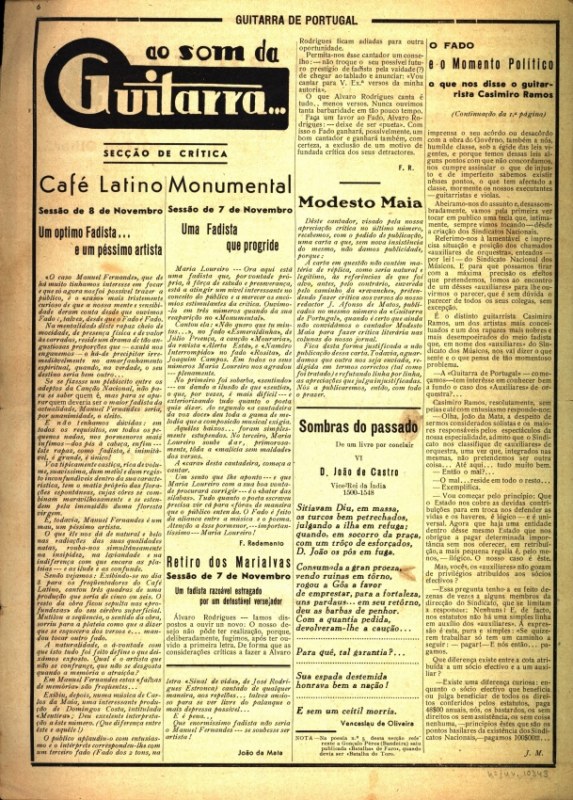
Guitarra de Portugal, 15 de Novembro | November 1945, p. 6
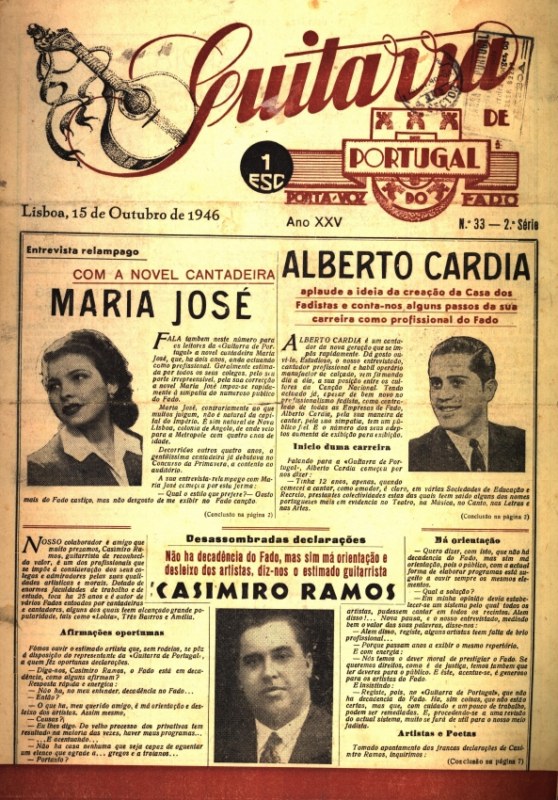
Guitarra de Portugal, 15 de Outubro | October 1946
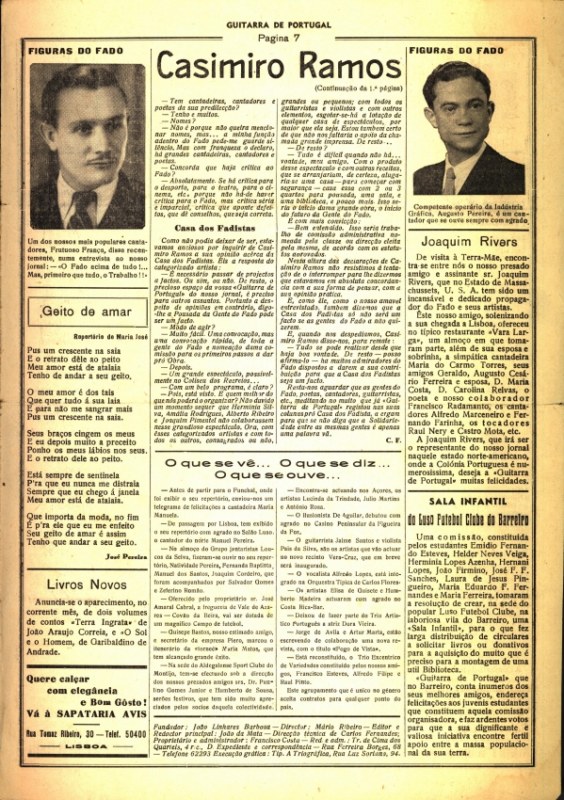
Guitarra de Portugal, 15 de Outubro | October 1946, p. 7
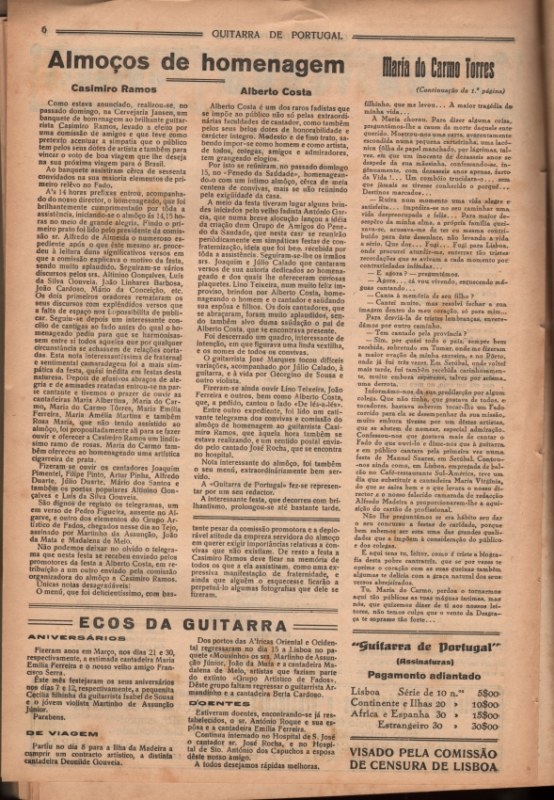
Guitarra de Portugal, 21 de Abril | April 1934, p. 6
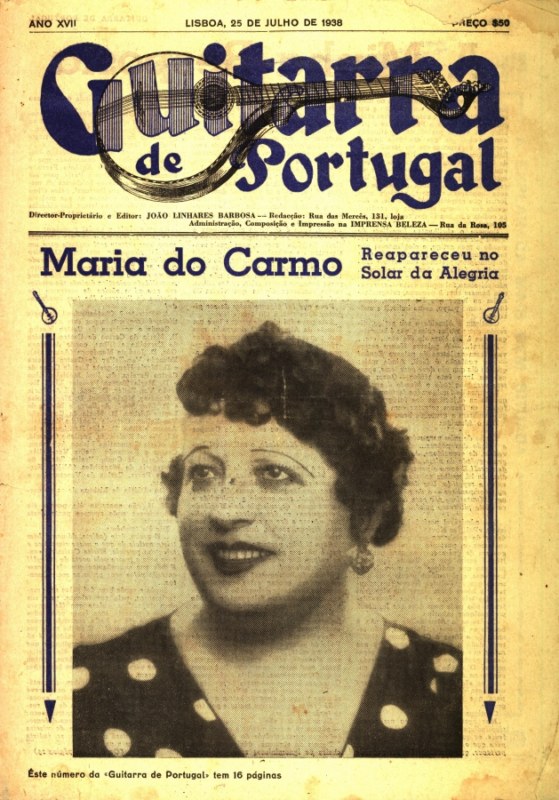
Guitarra de Portugal, 25 de Julho | July 1938
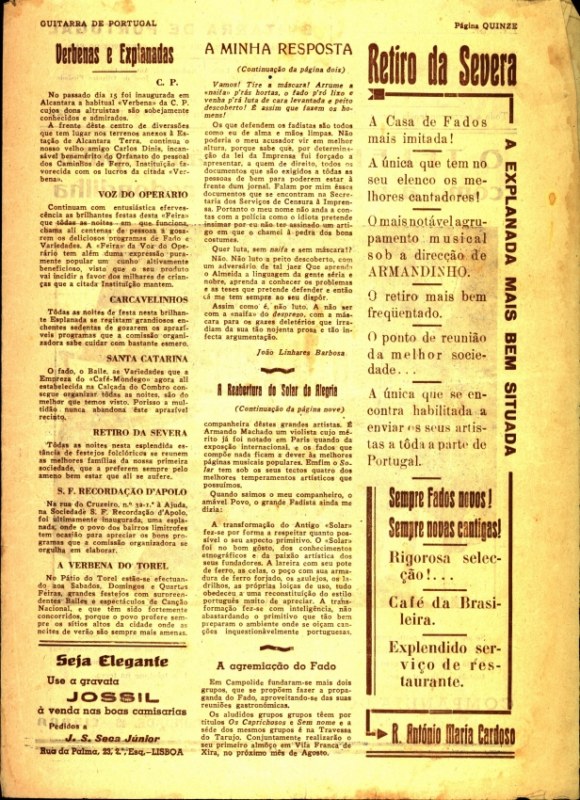
Guitarra de Portugal, 25 de Julho | July 1938, p. 15
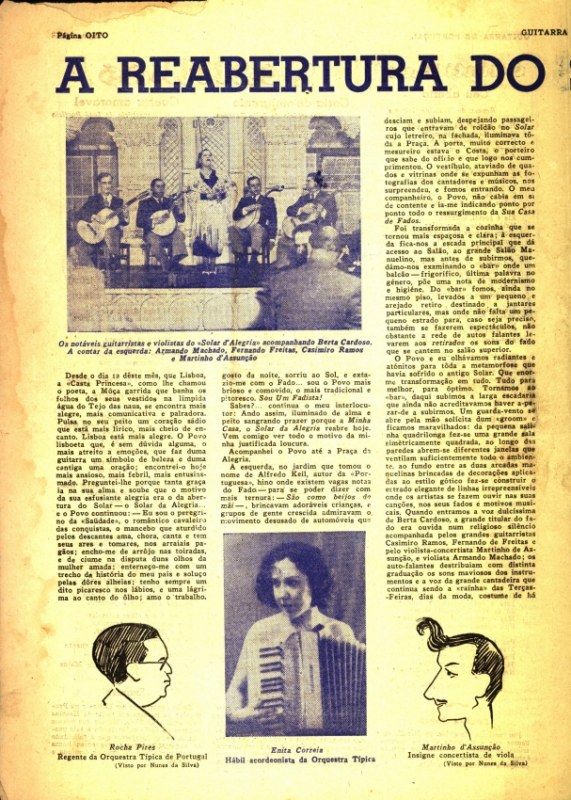
Guitarra de Portugal, 25 de Julho | July 1938, p. 8
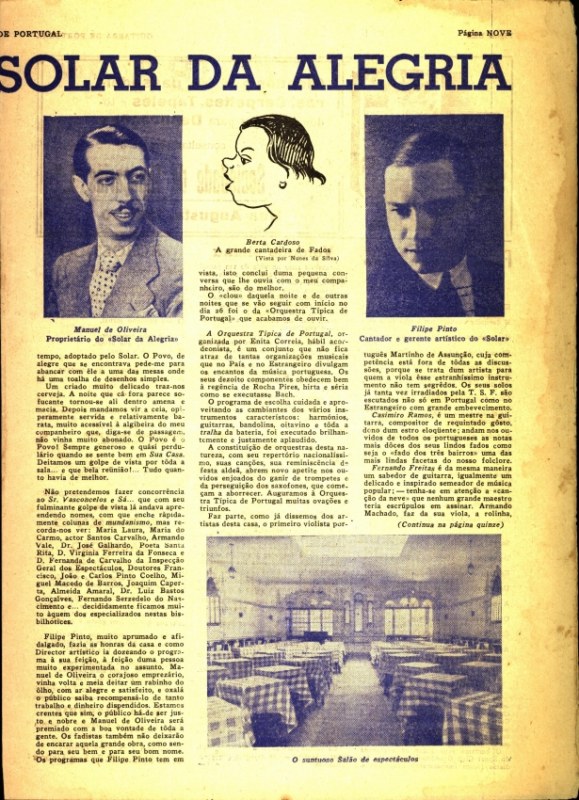
Guitarra de Portugal, 25 de Julho | July 1938, p. 9
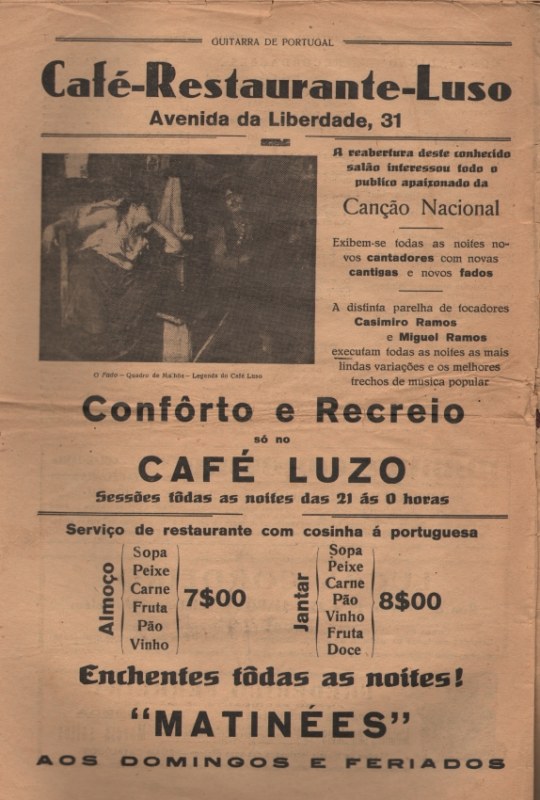
Guitarra de Portugal, 29 de Novembro | November 1933
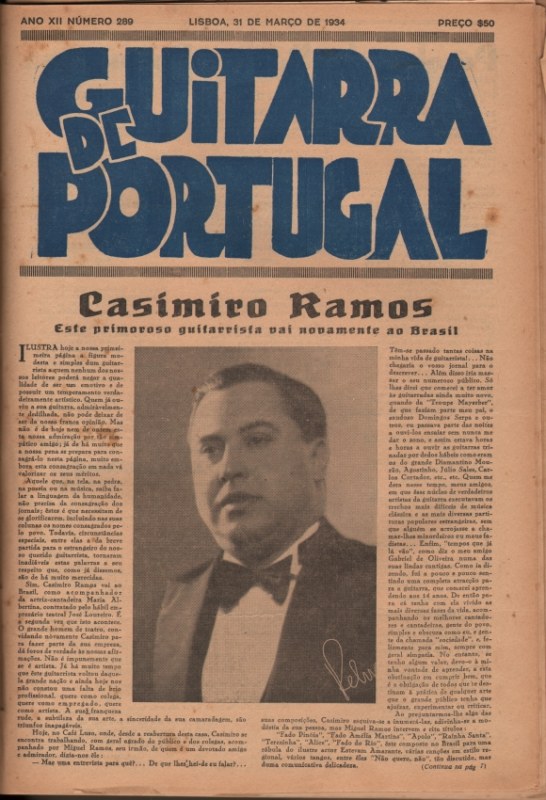
Guitarra de Portugal, 31 de Março | March 1934
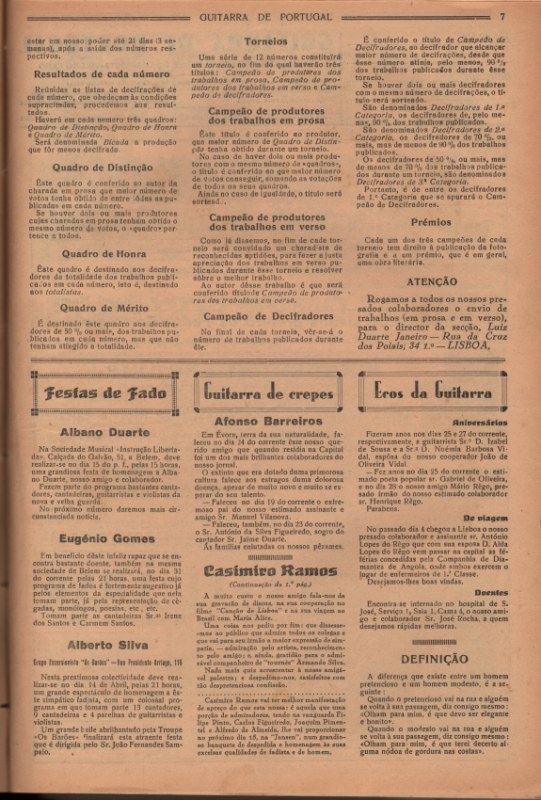
Guitarra de Portugal, 31 de Março | March 1934, p. 7
